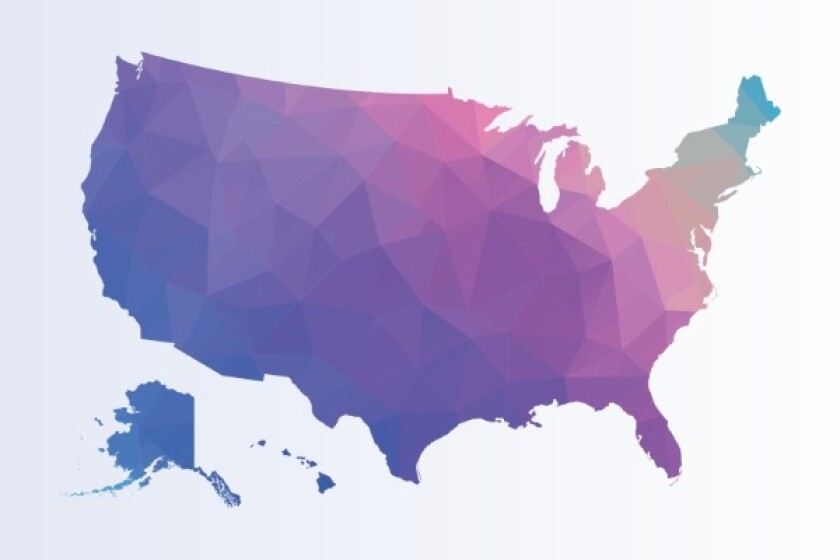While the venue shopping rules created by TC Heartland were a boon to some US companies, those that typically act as plaintiffs or are based abroad are still being stifled by the decision, handed down almost three years ago, according to in-house counsel.
The US Supreme Court (SCOTUS) ruled in TC Heartland v Kraft Foods on May 22 2017 that the patent venue statute (28 United States Code, Section 1400) was the exclusive venue law for patent infringement matters and largely stopped forum shopping practices across different states.
Before the judgment, patent owners could file actions in venues that were favourable to them, such as the Eastern District of Texas, which has long been seen as a patent-friendly forum. But plaintiffs can now only bring cases in the district in which the defendant is incorporated.
The change has been particularly beneficial to businesses that are typically targeted by patent assertion entities because such entities are now less able to increase their chances of securing a favourable outcome by picking the right forum.
For other companies, the change has gone largely unnoticed. Paul Coletti, associate patent counsel at Johnson & Johnson in New Jersey, says his business was mostly unaffected by SCOTUS’s forum shopping shutdown.
“The one area where TC Heartland might have had a knock-on effect was with non-practising entities (NPEs). But we do not have too many cases against NPEs and it really hasn’t seemed to have done much to us.
“When we sue our competitors or are sued by them, there are a handful of jurisdictions available that are logical. But that has always been the case.”
Shot through the heart (land)
But many businesses are still struggling with the changes as they continue to make their way through the patent landscape almost three years on.
Kevin Rhodes, vice president and deputy general counsel at 3M in Minnesota, says he was disappointed by the TC Heartland outcome because it wasn’t balanced and, to this day, can make litigation more costly and complex.
“If the defendant is infringing and subject to personal jurisdiction in our home court, where we made the patented invention and investments in research and technology to build a business, and where our witness and documents might be located, we should be able to enforce our rights there,” he says.
“An infringer could make a knock-off of one of 3M’s products right down the street. But if they’re incorporated in Delaware, we cannot sue them in the place where they’re actually harming our business.
“That rule makes litigation more arduous. It is costly and generally inconvenient to have to take evidence and witnesses across the country, so these rules put a one-sided burden on businesses trying to defend their rights against infringement.”
He adds that the needs of defendants and plaintiffs should be more balanced, and that 3M has proposed a change to the statute language through the Intellectual Property Owners Association patent law committee that would add balance.
Ernest Yakob, partner at Hogan Lovells in New York, adds that some of his clients are similarly still struggling with the fallout of TC Heartland after all this time.
“The case is still making its way through the system,” he says. “It is an important issue that we are concerned about and struggling with, and while there is more clarity on it now, there are a couple of things that need to be resolved,” he says.
Foreign obstacles
One of those issues is that the venue rules set out by SCOTUS do not apply to foreign corporations.
The IP manager at an electronics company based outside the US says this exemption is a problem because it requires foreign companies to file actions in the districts where potential infringers are incorporated, but doesn’t allow them the same privilege.
“The same problems that US companies had before TC Heartland still exist for us. We could be dragged to the Northern District of California if we’re the plaintiff and to the Eastern District of Texas if we’re the defendant.
“Fortunately, we’re not a pure foreign company and we do have a US entity, and that helps a lot. The problem is more pronounced when it comes to large foreign companies that have to go through an arduous process every time they experience litigation in the US.”
The general counsel at a medical device company adds that this exemption can be a challenge for US companies suing foreign ones as well. He points out that it can be difficult to actually find the defendant, on occasion, which makes it harder to bring litigation.
Despite having three years to adjust to the new rules, some companies are still having a tough time with TC Heartland.
Those firms want to see greater balance introduced to the statute governing patent infringement venues so that plaintiffs and foreign firms are given a fairer deal.











